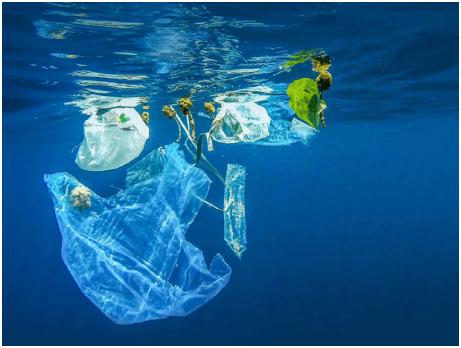Dubai has once again demonstrated its commitment to sustainability by spearheading an ambitious initiative aimed at reducing the use of single-use plastics.
In a world grappling with environmental degradation and mounting waste, this bold move signals a new chapter in the city’s pursuit of ecological responsibility. Through a combination of innovative policies, community engagement, and cutting-edge technologies, Dubai is laying the groundwork for a greener future, showcasing the city’s dedication to protecting the planet while setting an inspiring example for the global community.
The growing problem of plastic pollution has become one of the most pressing environmental issues worldwide. With millions of tons of plastic waste ending up in oceans, landfills, and natural habitats, the negative impact on wildlife, ecosystems, and even human health has been staggering. Single-use plastics—items designed for a one-time use, such as plastic bags, straws, and packaging materials—are a significant contributor to this crisis. Recognizing the urgent need to address this challenge, Dubai has implemented a series of measures designed to curb the production and consumption of these environmentally harmful products.
One of the key aspects of Dubai’s strategy is its ban on single-use plastic bags, which took effect in mid-2023. The ban marks a significant shift in the city’s approach to waste management and sustainability, sending a clear message that environmental preservation is a priority. By prohibiting plastic bags in supermarkets, retail outlets, and other commercial establishments, Dubai is encouraging both residents and businesses to embrace more sustainable alternatives, such as reusable bags made from eco-friendly materials. This move aligns with the broader global trend of phasing out single-use plastics in favor of more sustainable options.
In addition to the plastic bag ban, Dubai has introduced a variety of complementary measures aimed at reducing the overall use of single-use plastics. These include campaigns to raise public awareness about the environmental consequences of plastic waste and the importance of making sustainable choices in everyday life. The government has also partnered with businesses and non-governmental organizations to promote the use of biodegradable materials and recyclable products, further supporting the transition to a circular economy where waste is minimized, and resources are reused.
Dubai’s efforts are not limited to regulatory measures and public awareness campaigns. The city is also leveraging technological innovation to tackle the plastic problem head-on. Local startups and tech companies are developing new solutions to reduce plastic waste, including advanced recycling techniques and the creation of eco-friendly materials that can replace conventional plastics. By fostering a culture of innovation and supporting green technologies, Dubai is positioning itself as a leader in the global movement to eliminate plastic waste.
One notable example of Dubai’s technological innovation in this space is the development of smart waste management systems. These systems use data-driven technologies to track plastic waste generation, optimize recycling processes, and ensure that plastic materials are efficiently repurposed rather than ending up in landfills. By integrating technology into waste management, Dubai is maximizing its efforts to reduce plastic pollution while paving the way for other cities to adopt similar approaches.
Collaboration plays a vital role in Dubai’s sustainability journey. The city has fostered strong partnerships with international organizations, environmental groups, and businesses to amplify its efforts. These collaborations have resulted in joint initiatives aimed at tackling plastic pollution, with Dubai serving as a platform for sharing best practices, research, and innovative solutions. By working together with global stakeholders, Dubai is reinforcing its commitment to being part of the solution to the worldwide plastic waste crisis.
The city’s hospitality and tourism sectors have also embraced the shift toward sustainability. Many hotels, restaurants, and resorts have eliminated single-use plastic items, replacing them with biodegradable or reusable alternatives. This move is particularly important given Dubai’s status as a leading global tourist destination, attracting millions of visitors each year. By showcasing environmentally responsible practices to tourists, Dubai is not only reducing its environmental footprint but also raising awareness about the importance of sustainability on an international scale.
Furthermore, Dubai’s schools and educational institutions are playing a key role in promoting sustainability among younger generations. Environmental education programs are being integrated into the curriculum, teaching students about the importance of reducing plastic waste and adopting eco-friendly habits. By instilling a sense of environmental responsibility in students from an early age, Dubai is helping to create a new generation of environmentally conscious citizens who will carry forward the city’s commitment to sustainability.
Dubai’s bold action on single-use plastics is part of its larger vision for a sustainable future. The city has long been a champion of ambitious environmental initiatives, from its investments in renewable energy to its plans for smart, sustainable urban development. The efforts to eliminate single-use plastics align with Dubai’s broader goals of reducing carbon emissions, conserving natural resources, and fostering a culture of sustainability across all sectors of society.
As with any significant change, challenges remain in the journey toward a plastic-free future. The transition away from single-use plastics requires widespread behavioral change, as well as ongoing investment in infrastructure and technology. However, Dubai’s proactive approach, backed by strong leadership, community engagement, and a willingness to innovate, puts the city in a strong position to overcome these challenges and realize its sustainability goals.
In the global context, Dubai’s actions serve as a model for other cities and countries looking to tackle plastic pollution. The city’s comprehensive approach—combining policy, technology, and collaboration—demonstrates that it is possible to take meaningful action against plastic waste without compromising economic growth or development. By addressing the root causes of plastic pollution and promoting sustainable alternatives, Dubai is not only safeguarding its environment but also contributing to the global effort to create a cleaner, healthier planet.
As the world watches Dubai’s progress, it is clear that the city’s bold actions on single-use plastics are just the beginning. With continued innovation, collaboration, and public engagement, Dubai has the potential to achieve its vision of becoming one of the most sustainable cities in the world. This initiative sends a powerful message that the future of environmental protection lies in collective action and a shared commitment to creating a more sustainable world for future generations. Dubai’s pioneering efforts in the fight against plastic pollution are a testament to the city’s leadership in the global sustainability movement, and its journey toward a greener, more resilient future is one that will undoubtedly inspire others to follow suit.
Stay Connected: ”Your Source for the Latest News Updates”





